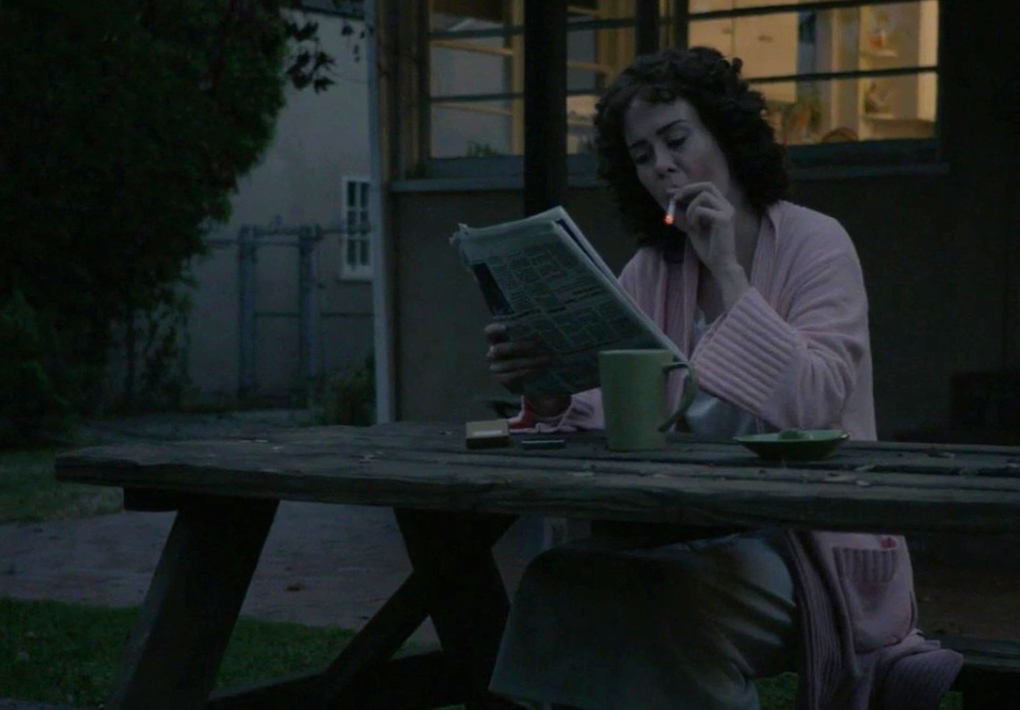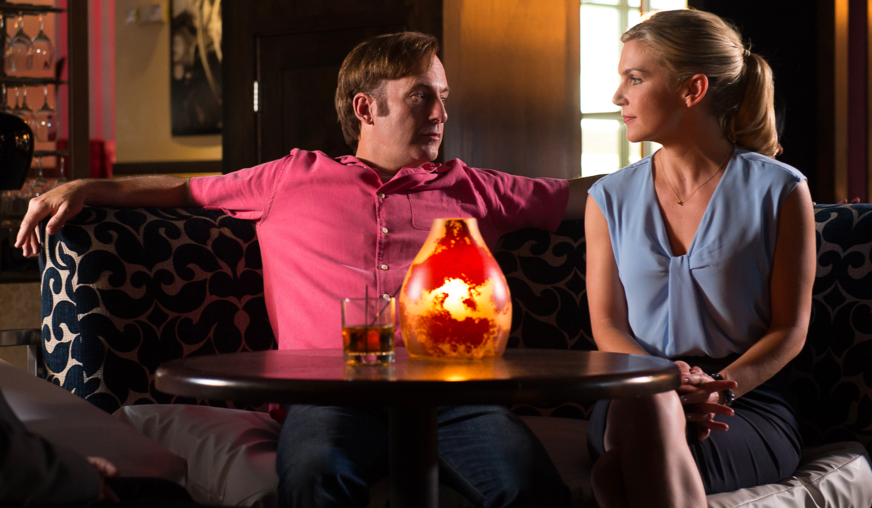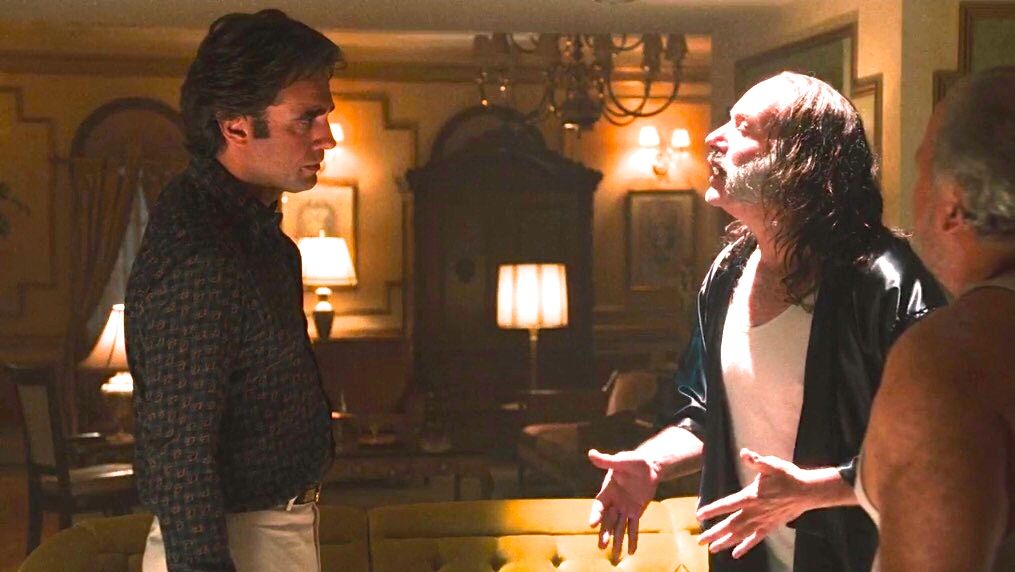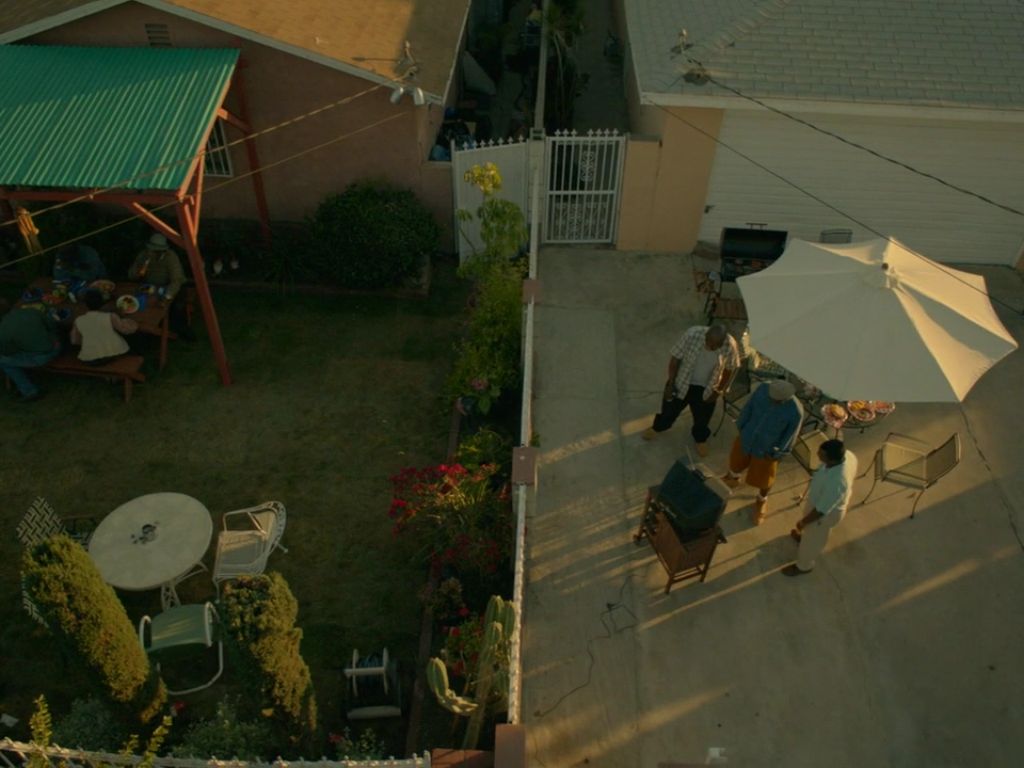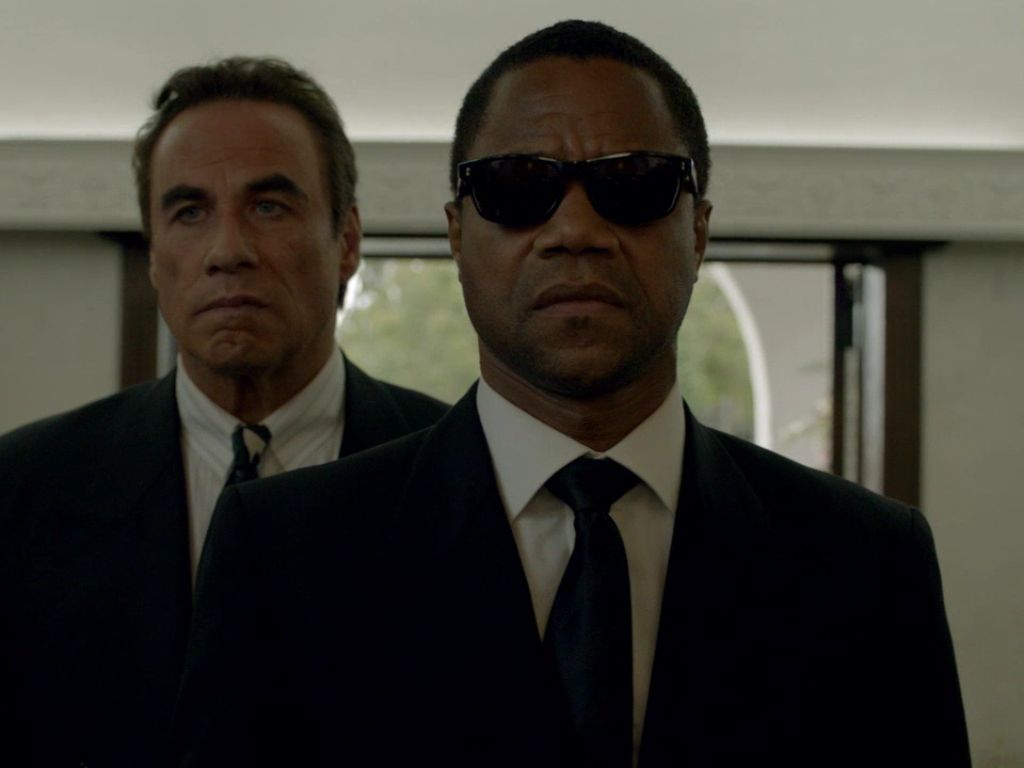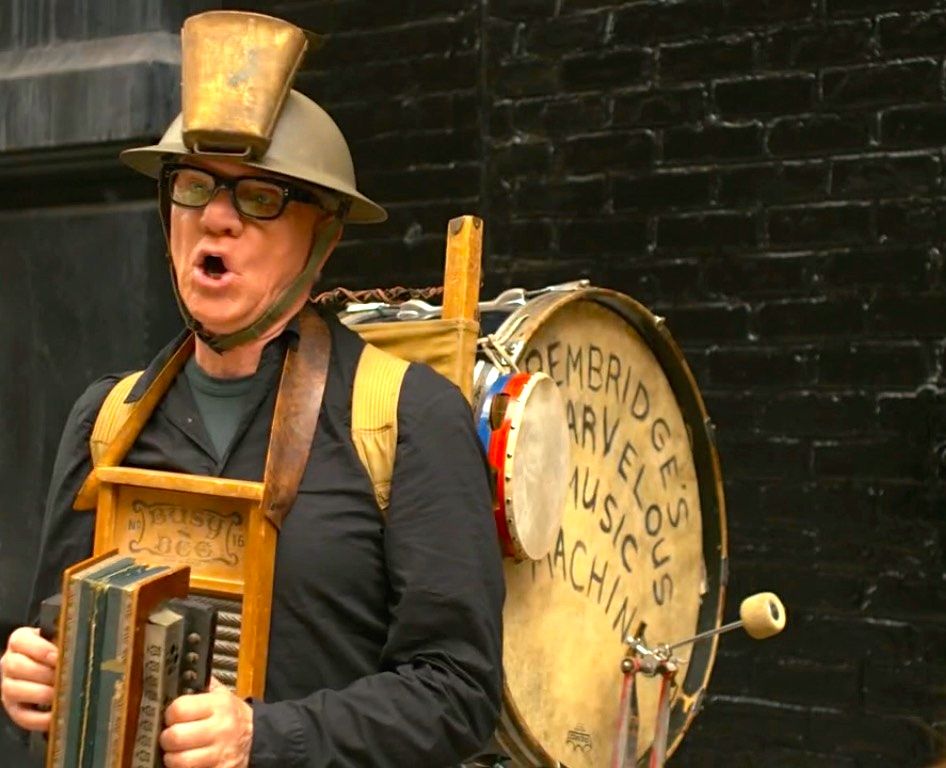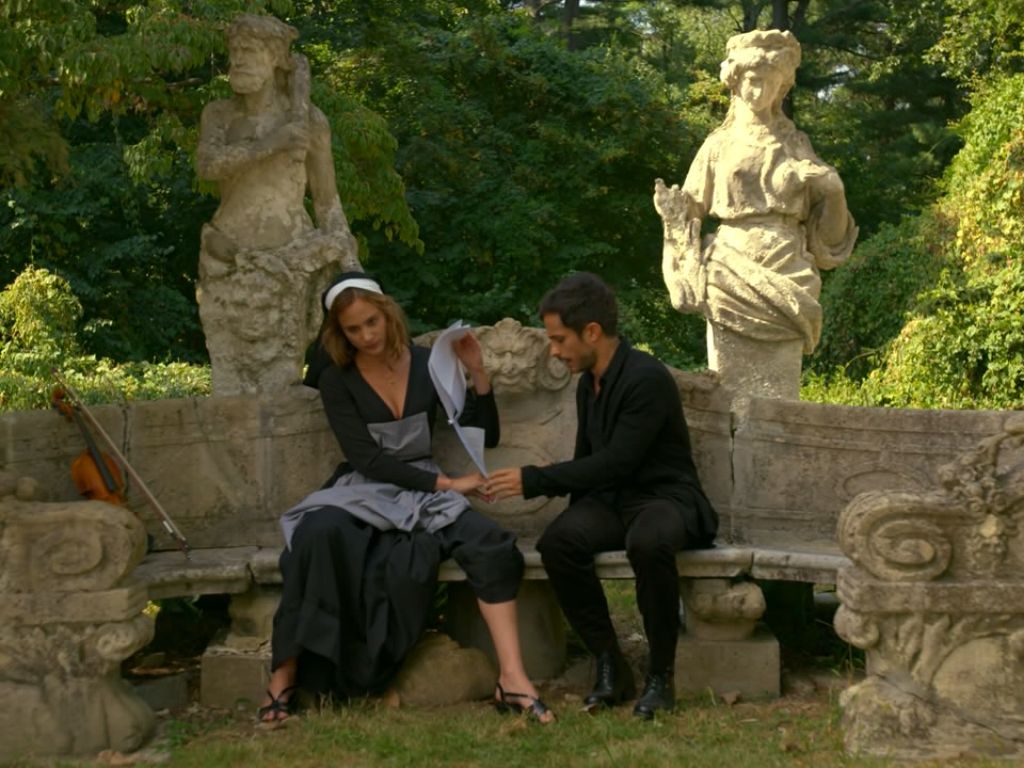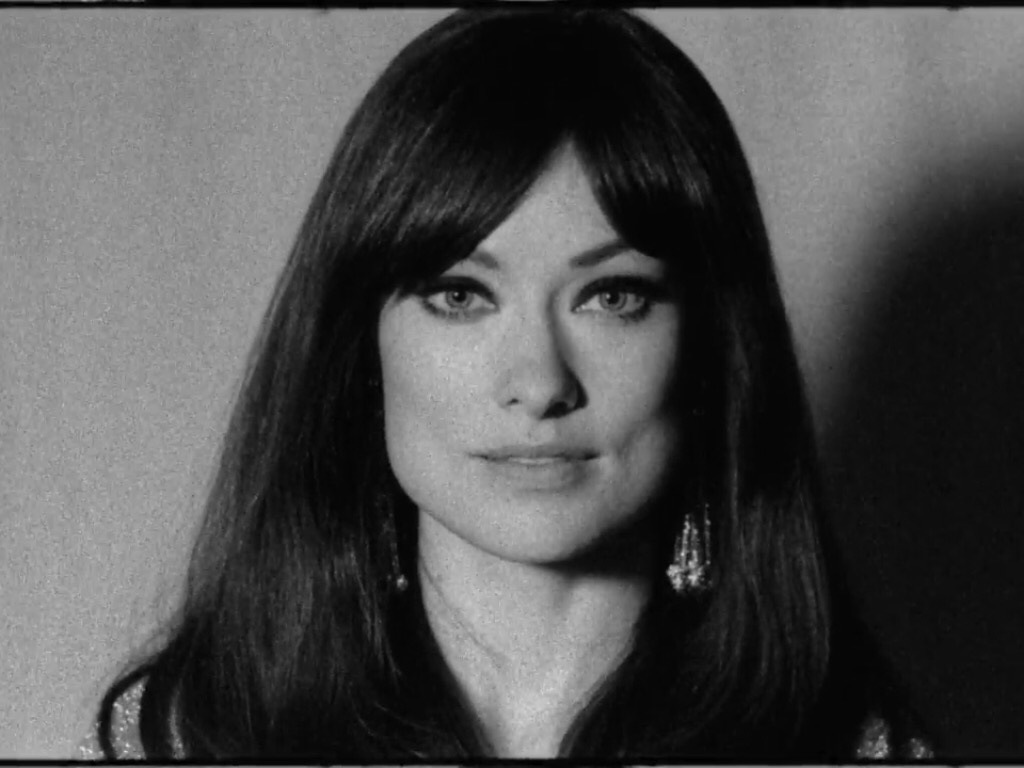
[For Vinyl “Yesterday Once More” or any other recaps on Fetchland, assume the presence of possible spoilers.]
HBO Summary:
Yesterday Once More. Richie delivers a bombshell that shocks prospective buyers and his partners.
Essentially “Yesterday Once More” boils down to reinvention. Every major character needs it, seeks it, and desperately drives the story forward in this pursuit. Richie needs to reinvent his company. Devon wants to invigorate her boring life. Zak desperately desires a home-life and wife makeover. Jamie seeks a career boost. Julian tries to reinvent the Nasty Bits and in the last scene it looks like even Lester Grimes may finally get his chance. It’s all a frenzy and happens fast but all of it runs along that same theme of reinvention and what better place to look for inspiration than the past? That’s the only place Devon looks, with a little help from The Carpenters and their song “Yesterday Once More”.
The episode opens as Richie teaches himself to kickbox with the help of cocaine and a karate flick. Meanwhile back at the office the Germans and his partners await his arrival so they can finally sign off on the company sale. Zak takes valium to get through this next challenging bit of life and then wasted, bloody-browed Richie finally shows up at the office and makes a declaration. They’re not selling the company after all. He’s had a rock n’ roll epiphany. His skills have transcended to a spiritual level. The other partners mumble grumble next to this newly minted guru at their helm. Thing is… they really don’t want to sell because of the money. Their minds are on mortgages and kids going to college so they explain but Richie has dreams, dammit. He uses his recently acquired kickboxing skills, gives them each a taste of his fiercest karate choppin’ and swiftly breaks Zak’s nose. Then Richie calls the Germans “Nazi pricks” and tells them the deal’s off.
Meanwhile Devon has that faraway look in her eye again and she didn’t even do any drugs. All it took was The Carpenters on the radio to take Devon to la la land. She remembers Andy Warhol’s Factory and all the good times she had there. Devon flashes back to the night she met Richie at a Velvet Underground show. They were both with other people but the attraction was so palpable that when Devon left the table to go “to the ladies” Richie knew to follow so they could indulge in ferocious bathroom sink fucking. But that was long ago and today Devon’s in the bathroom at Friendlys Family Restaurant staring in the mirror and listening to The Carpenters song,”Yesterday Once More” – thus the episode title. Devon’s so lost in the song that she accidentally forgets her kids, still sitting in the booth at Friendlys. She drives away in the station wagon without them. It’s only when Devon passes a “children playing” sign during her drive that she remembers the kids back at Friendlys. So, Richie’s not the only one who’s losing sight of his commitments while tangled in a fantasy. Seems to be a family trait. Only difference is that Devon’s horrified with herself when she realizes how lost she got. Richie’s too busy stuffing blow up his nose and living the dream to care.
Back at the office Richie fires all of A&R and tells them if they find a great new artist within two weeks they can earn their jobs back. It’s because they turned down the deal with the Germans and are back to being a dream factory. So get out there and “find bands that make you want to dance or fuck or kick somebody’s ass,” easy peasy, guys. After this Richie tells Jamie, who wears a nearly-to-the-navel-deep V neck shirt, that her job is OK, unlike the others. She asks him what he thought of the Nasty Bits and he says he thinks there’s something there, some balls in their sound. After Jamie offers coaxing, blow jobs, and a new stash of coke for his collection Richie says she can work with Julie (Julian the head A&R guy) and get the band ready. Julie and Jamie then watch the Nasty Bits rehearse and he hates them. Julie’s got some Nasty Bit reinventing to do. He sends Jamie out for coffee and berates her in front of the band.
Speaking of berating, next we see broken-nosed Zak with his wife prepping for his daughter’s bat mitzvah. With four hundred people invited and a calculator whirring through costs in higher and higher escalations, it turns out Zak’s shelling out more for this event then he paid for his first house. At home that night he endures humiliations from the wife about paying for his broken nose and goes out to the garage to consider taking the whole bottle of valium as an escape from the pain. But then Zak tosses them aside. Instead he crashes up the back of his car with a wrench so he can backup the story he told her about getting a broken nose from a rear-end collision. So, clearly Zak’s afraid of his wife. He protects his job with Richie rather than venting to her about what’s really going on at work. Zak can’t vent to her because if his wife knew the money from the sale is kaput now she’d be even more upset. It’s his wife who insisted on the “premium package” for the bat mitzvah, after all. Zak’s humiliated all around. But hey, at least he got to take his feelings out on the back of his car. He’s a fighter after all.
Devon confronts Richie about the fact that he’s doing drugs and drinking again. Right after this the homicide detective that haunted Richie in episode one shows up to talk to him about a murder. Interestingly, it isn’t the murder from the night before but another very different one involving Maury Gold, the guy Richie sold out Lester to years ago. Gold apparently has mob ties and thus, may be implicated in a murder. The cop quickly sees that Richie’s not involved in this investigation and leaves. So, then Richie falls apart in Devon’s lap while she’s transported to more memories of their first days together again. In these particular glorious flashbacks Andy Warhol (played by John Cameron Mitchell) finally comes to the Vinyl party when Devon remembers how Andy met Richie for the first time. It’s evident that Devon was a Factory Girl and one of Andy’s favorites. In her recollection Richie encourages Devon to do a Warhol screen test, something Andy’s been dying for but Devon wouldn’t even consider until Richie came along. Devon hates it because she’s “just sitting there” but then sees Richie remove his sunglasses to watch her. This transports her into a loving place and thus her gorgeous eyes return to the camera and eat the lens with Devon’s in-love intensity. Then back in the present day she wants sex with Richie and starts kissing him. But he’s “tired” which is code for his coke-addled saggy dick because there’s no way in hell he’s actually tired. Of course not. How could someone who’s been non-stop snorting coke all day be tired? They can’t but they also can’t get it up – a known side effect of cocaine. So, Devon falls asleep and then wide-awake-Richie sneaks out. He goes back to where he saw Lester in the “Pilot” episode and knocks on Lester’s door. “We gotta talk,” Richie says and Lester lets him inside.
Richie and Devon long for their past selves in “Yesterday Once More” but not necessary their true selves. In fact, it seems possible these ideas they have about how they were may not even be real. Richie was a dreamer with a passion for music, yes. And Devon was going places with her acting and fancypants connections but these things don’t last forever. Somewhere along the way they took a few turns, including an agreement to stay away from drugs and alcohol. The duo seem to believe they can reinvent who they are – do it better. Richie appears to have a major lead on her with this endeavor but Devon has Warhol… and reinventing is what he does best. Mainly we want to see what’s going to happen with Lester. Will Richie redeem himself and help make Lester a star as a Blues musician? We hope this reinvented Richie can make it so.
–Katherine Recap



